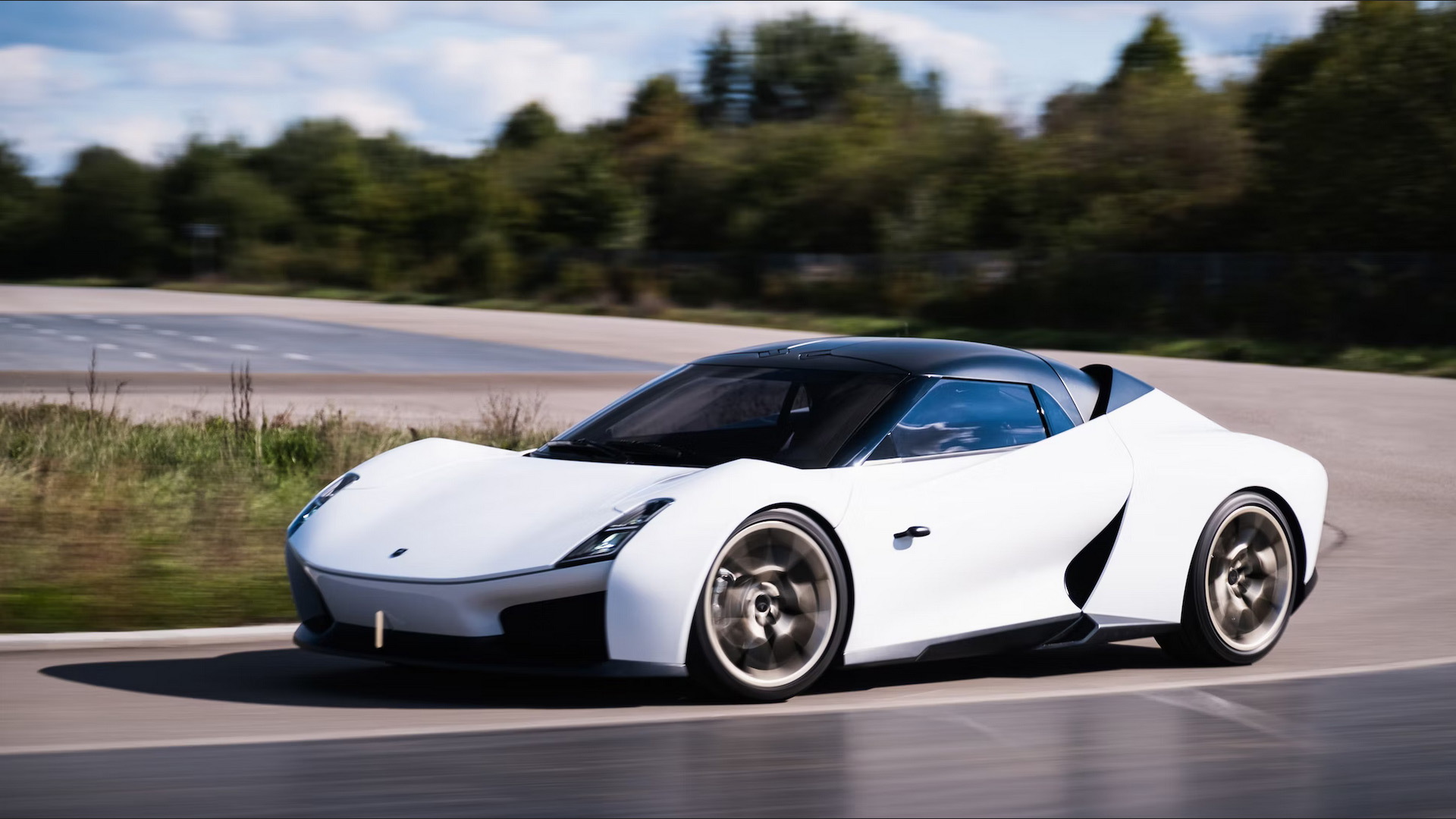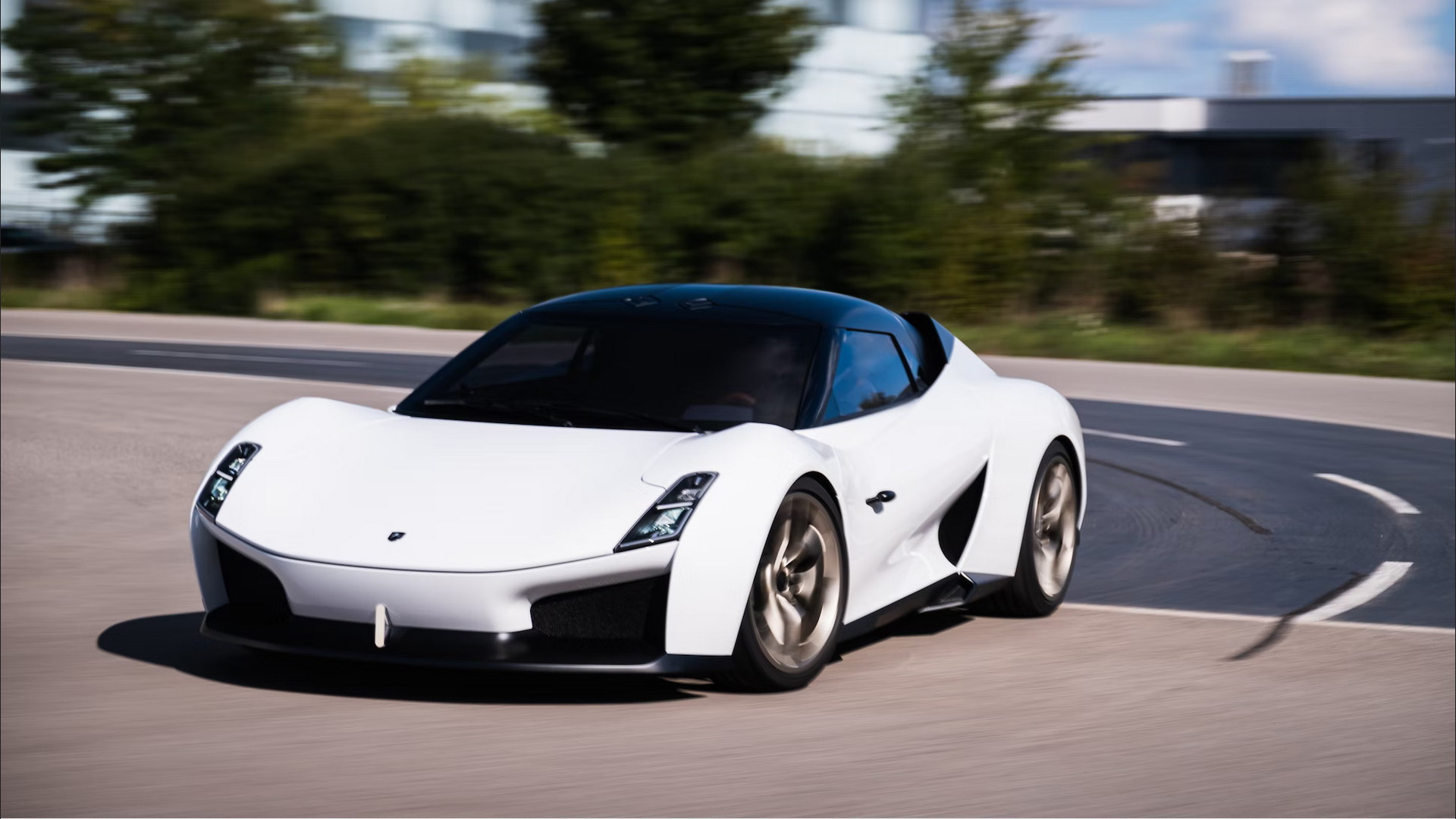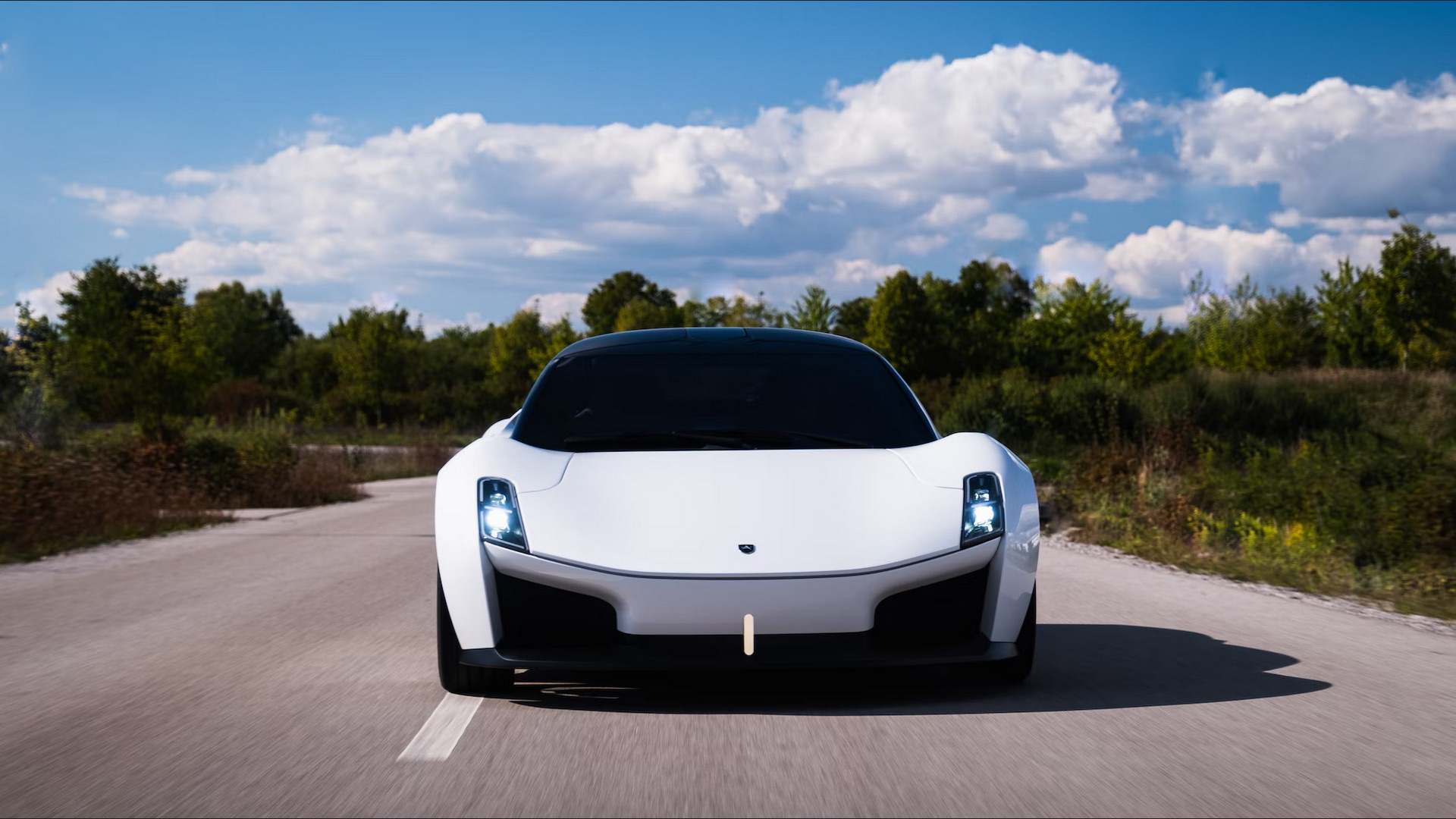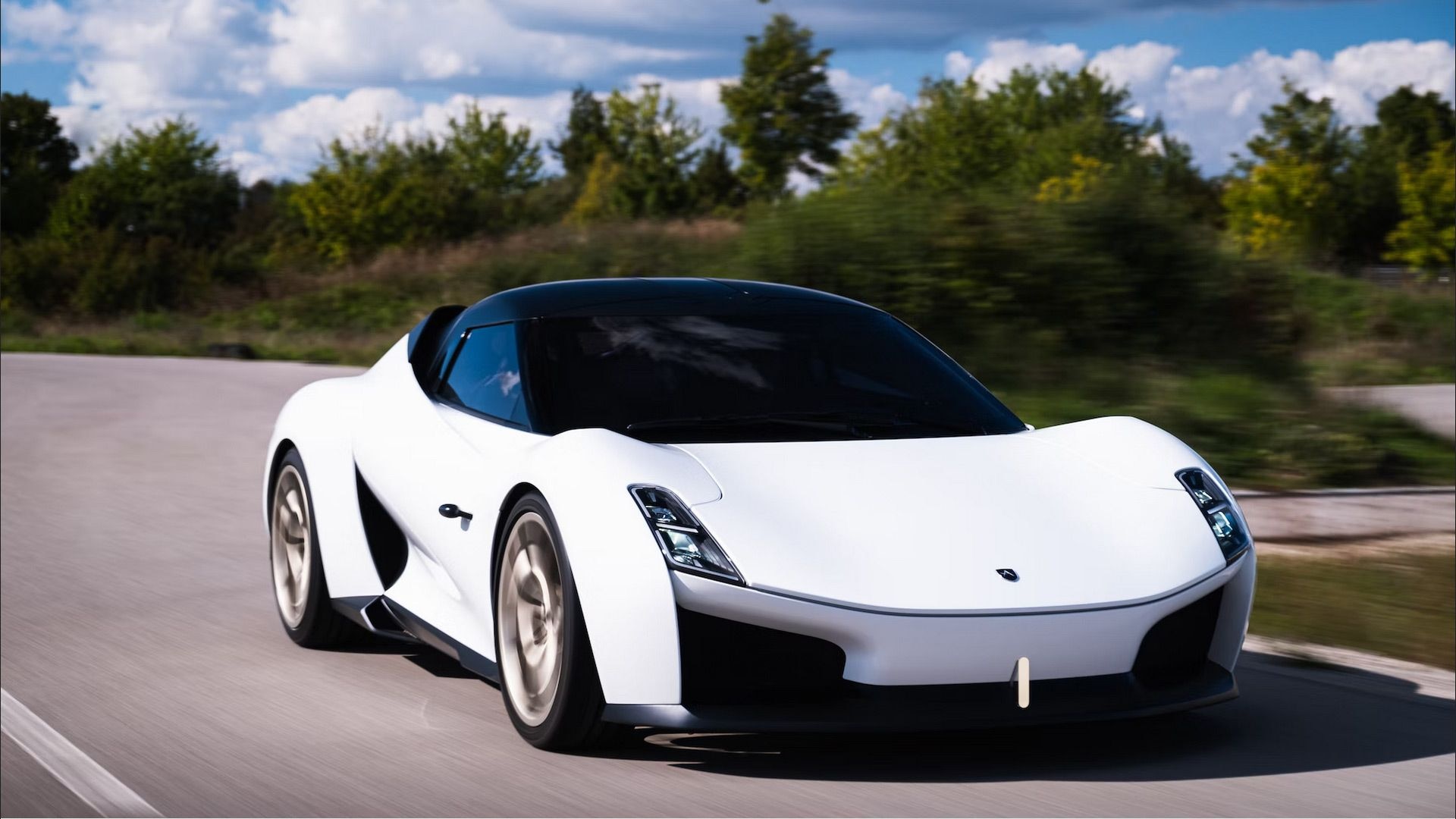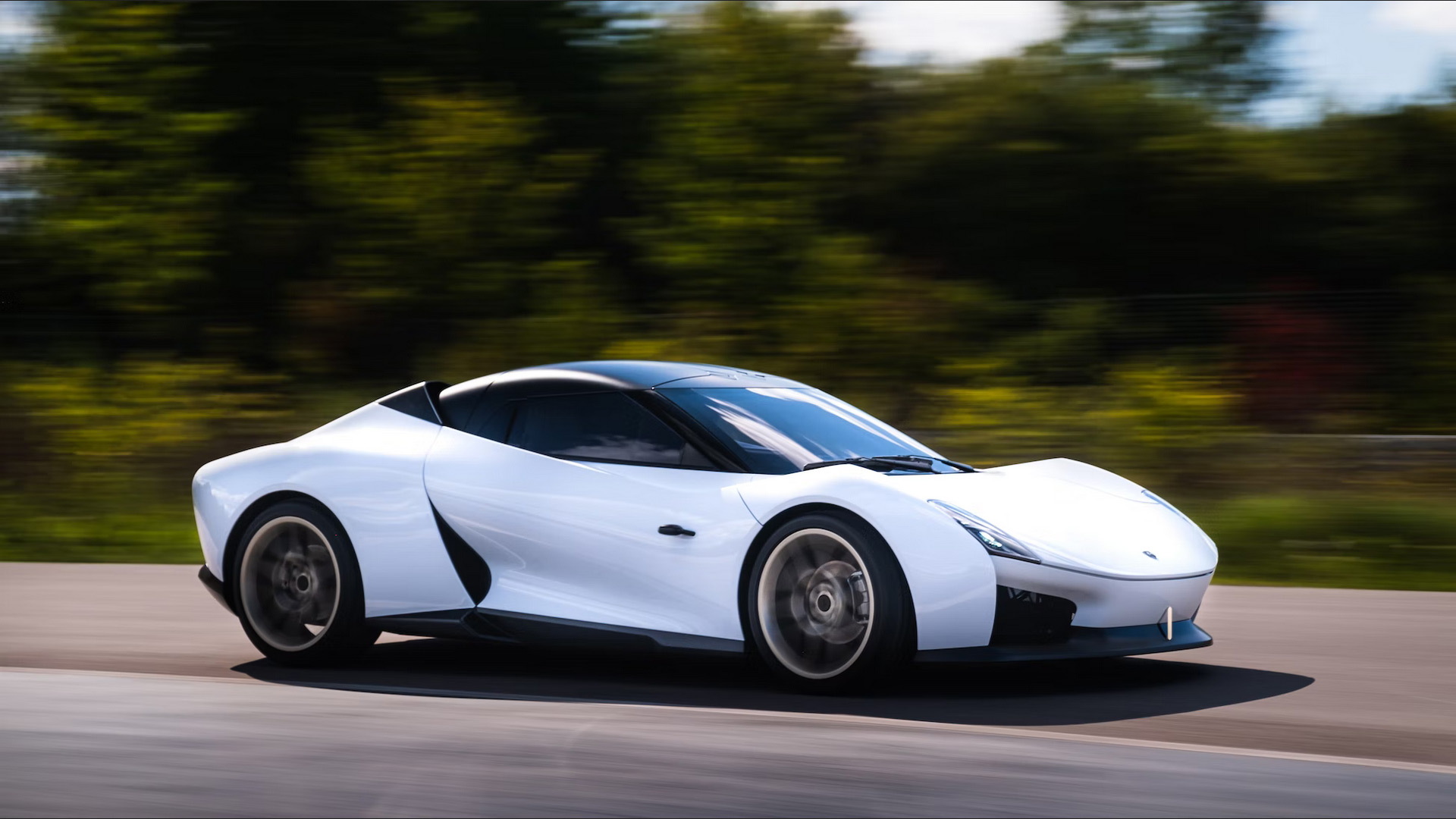Apollo may have made its mark on the automotive scene with a stunning V-12-powered hypercar, but the company's future lies in electric vehicles, and on Tuesday it revealed a sports car it's using to develop electric powertrain technology.
Apollo is the Chinese performance marque born out of the remains of German supercar marque Gumpert. Its first model was the Batmobile-esque Intensa Emozione, which has since spawned an even wilder successor in the form of the Project Evo.
However, Apollo, whose full name is Apollo Future Mobility Group, in August said it planned to develop luxury EVs next. The company provided a taste last fall with the reveal of the EVision S coupe concept during the 2021 China International Import Expo trade show, and at the 2022 Guangzhou auto show in November the covers will come off Apollo's first production-bound EV, a roadster the company plans to launch in early 2024.
Apollo is testing the powertrain for its future EVs in a sports car prototype code-named G2J.
No specs have been announced, but Apollo previously announced an electric powertrain claimed to run on an 800-volt system and feature a silicon-carbide inverter, both of which are ideal for high efficiency.
The G2J has been in development for more than two years, involving teams in China, Germany, and Japan, and it's testing not only the powertrain but also connectivity features and a wider digital ecosystem that will be core to future Apollo vehicles. The company has said it is even exploring how aspects of the virtual world can be integrated into the company's cars.
The G2J prototype's carbon-fiber construction also signals Apollo's commitment to building lightweight EVs, the company said.
“(The G2J) will underpin a highly exciting and anticipated suite of new electric performance vehicles,” Eric Ho, Apollo's chairman, said in a statement. “The beautiful form of this test car is just a hint of the future design of a series of performance cars that will take the Apollo hypercar DNA and apply it to create the most exciting sporting focused EVs on the planet.”
